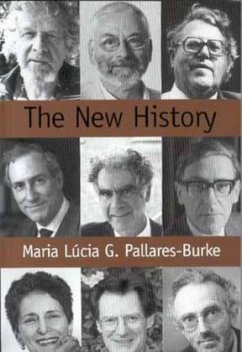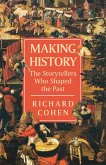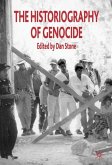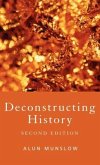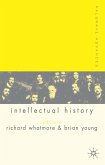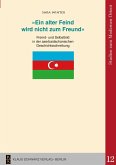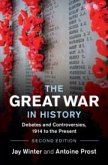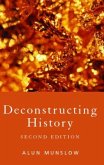In this innovative volume, Maria Lucia Pallares-Burke examines the nature of the so-called new history . In conversation with nine leading scholars associated with the movement, Pallares-Burke investigates the new approaches to the writing of history. In a series of interviews, Asa Briggs, Peter Burke, Robert Darnton, Carlo Ginzburg, Jack Goody, Daniel Roche, Quentin Skinner, Keith Thomas and Natalie Zemon Davis are questioned about their major works and their relation to other key historians and theorists.
Urging each historian to justify their methods and to reflect on their intellectual trajectory, Pallares-Burke tries to make explicit the experiences and ideas that are otherwise implicit in the historian s work. The interviews probe the historians personal and intellectual background and offer fresh insight into the possibilities, problems and preoccupations of contemporary historical practice. The result is a lively and illuminating book that will appeal to both students and scholars.
Hinweis: Dieser Artikel kann nur an eine deutsche Lieferadresse ausgeliefert werden.
Urging each historian to justify their methods and to reflect on their intellectual trajectory, Pallares-Burke tries to make explicit the experiences and ideas that are otherwise implicit in the historian s work. The interviews probe the historians personal and intellectual background and offer fresh insight into the possibilities, problems and preoccupations of contemporary historical practice. The result is a lively and illuminating book that will appeal to both students and scholars.
Hinweis: Dieser Artikel kann nur an eine deutsche Lieferadresse ausgeliefert werden.
"If history is the latest new rock'n'roll (at least on TV), thenwhat's really rocking in the discipline itself? In this engagingset of interviews with past masters, a Brazilian historian asksworld-ranking figures about their careers and ideas."
The Independent
"Scholars are self-effacing by vocation, but Maria LúciaPallares-Burke leads some of the world's most influentialhistorical thinkers into enthralling revelations. We hear JackGoody - the greatest and most under-appreciated livingBritish intellectual - bemoaning the obscurity of his ownideas, and Quentin Skinner self-condemned as a "localhistorian". We learn what it was like for Peter Burke to facetemptation in Singapore, Natalie Davis to survive McCarthyism,Keith Thomas to encounter voodoo. The interviewees engage infascinating implied dialogues with each other. Among surprisingrecurrent themes - Marxism, Brazil - two lessons ringthrough: the need for a comparative approach to history and thevalue of what Peter Burke calls "soft culturalrelativism"."
Professor Felipe Fernándes-Armesto, Queen Mary,University of London
"Professor Maria Lúcia Pallares-Burke is a perceptive andwell-prepared interviewer of nine prominent social and culturalhistorians for[this book,] which first appeared in her nativeBrazil."
Canadian Journal of History, December 2004
The Independent
"Scholars are self-effacing by vocation, but Maria LúciaPallares-Burke leads some of the world's most influentialhistorical thinkers into enthralling revelations. We hear JackGoody - the greatest and most under-appreciated livingBritish intellectual - bemoaning the obscurity of his ownideas, and Quentin Skinner self-condemned as a "localhistorian". We learn what it was like for Peter Burke to facetemptation in Singapore, Natalie Davis to survive McCarthyism,Keith Thomas to encounter voodoo. The interviewees engage infascinating implied dialogues with each other. Among surprisingrecurrent themes - Marxism, Brazil - two lessons ringthrough: the need for a comparative approach to history and thevalue of what Peter Burke calls "soft culturalrelativism"."
Professor Felipe Fernándes-Armesto, Queen Mary,University of London
"Professor Maria Lúcia Pallares-Burke is a perceptive andwell-prepared interviewer of nine prominent social and culturalhistorians for[this book,] which first appeared in her nativeBrazil."
Canadian Journal of History, December 2004

